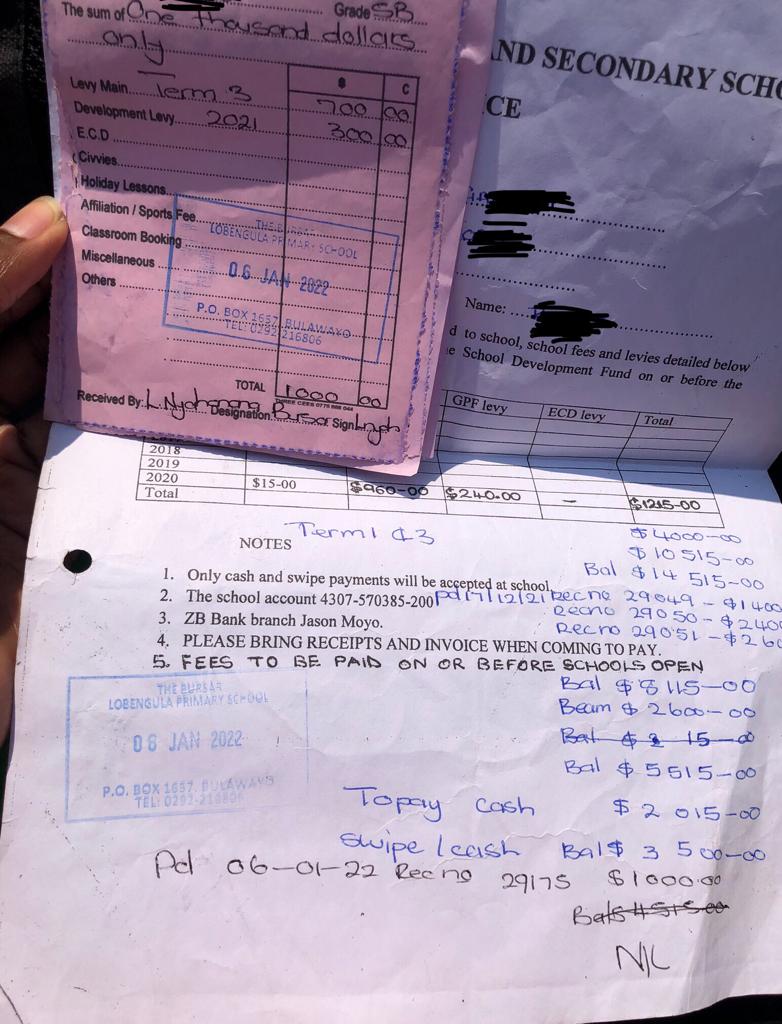The Ministry of Public Service, Labour and Social Welfare has reported a significant backlog in payments under the Basic Education Assistance Model (BEAM), with arrears totaling approximately US$46 million owed to schools across the country.
Some of these outstanding payments date as far back as 2021, placing a heavy financial burden on schools that rely on BEAM funding to support vulnerable students.
The backlog in the BEAM payments has been a growing concern not only for the government and council schools across the country but beneficiaries as well.
Deputy Minister of Public Service, Labour and Social Welfare, Mercy Dinha, addressed the issue in a recent parliamentary session, revealing that the Ministry has formally requested the Treasury to release the necessary funds to clear the backlog.
“In view of the outstanding tuition fees and levies payments for BEAM beneficiaries, the Ministry of Public Service, Labour and Social Welfare is collaboratively working with the Ministry of Finance, Economic Development and Investment Promotion to make sure that outstanding school fees arrears are settled,” Dinha said.
Dinha added that special schools for children with disabilities were prioritised and received payments during the first term of 2024.
“The Ministry has so far submitted a comprehensive request to the Treasury for the release of BEAM funds citing the total amounts owed to schools across the country. However, it is important to note that special schools for children with disabilities were prioritised and received payments during the first term of 2024,” said the deputy minister.
Although the Treasury allocated ZiG$50 billion to the Ministry, only ZiG$30 billion has been disbursed so far, leaving many schools in a precarious position as they await the remaining funds.
The deputy minister highlighted that the Ministry has been taking steps to address the backlog and prevent future delays.
One of the key initiatives has been decentralising the administration of BEAM to sub-national tiers of government, which involves allocating data capturing functions to all ten provincial offices.
“The Ministry has since decentralised the administration of BEAM to sub-national tiers of Government. Data capturing functions were allocated to all the ten provincial offices to enhance efficiency in the capturing, verification and pay sheets generation within a devolved structure,” Dinha said.
Additionally, Dinha said the Ministry has developed a new electronic management information system that is ready to go live and was designed to improve the BEAM administration.
“Moreso, a new electronic management information system has since been developed and is ready to go live. This BEAM online solution will significantly improve the BEAM business flow and real time submission and processing of payments by the Ministry,” said the deputy minister.
The deputy minister’s sentiments come after Corban Madzivanyika, a member of parliament, had raised the issue during the session, urging the Ministry to make sure that the backlog is cleared promptly.
Madzivanyika emphasised the importance of timely disbursements, noting that the ongoing delays have placed many schools under significant financial strain.
In response, the deputy minister assured that the Ministry is lobbying the Treasury for more consistent and timely releases of BEAM funds, in line with the programme’s calendar, to avert such issues in the future.
“It is true that there are some schools that are owed as far back as 2021. We have since engaged the Treasury so that they can give us all the arrear funds. The figure is around US$46 million. Right now, the Treasury allocated us $50 billion, but the amount so far released is $30 billion. So, we await the Treasury to avail the funds,” Dinha said.

